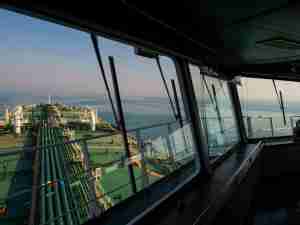Iraq’s south oil exports rise to near-record, avoid northern conflict
By: Reuters | Jul 23 2014 at 11:05 AM
Iraq’s oil exports from its southern terminals in July rose to a near-record rate, according to loading data and industry sources, remaining unaffected by fighting in other parts of the country.
An advance by Sunni militants who seized swathes of northern Iraq last month raised concern Iraqi exports could slow down and briefly boosted global oil prices to a nine-month high above $115 a barrel.
Exports from Iraq’s southern terminals have averaged 2.52 million barrels per day (bpd), according to shipping data for the first 23 days of July tracked by Reuters. Two industry sources who also monitor the exports had similar estimates.
“There’s no impact,” a trader with a company that buys Iraqi crude said, referring to whether the unrest had affected southern exports. “I don’t think it will reach that area.”
The export rate so far in July is up from 2.43 million bpd in June, when maintenance and expansion at the Basra oil terminal slowed shipments, and is close to May’s average of 2.58 million bpd - the highest since 2003.
However, exports are not as high as the 2.60 million bpd Iraqi officials have said is planned for July. The trader said bad weather had slightly delayed some cargoes this month.
Iraq’s oil supplies were held back by decades of wars and sanctions. It has been expanding oil production in the south since Western companies signed a series of service contracts with Baghdad in 2010.
Total exports from Iraq’s northern and southern ports hit a record 2.8 million bpd in February. But northern exports of Kirkuk crude have been shut since March 2 due to attacks on a pipeline to Turkey, keeping total exports below their potential.
Kurdish forces took control of facilities at Kirkuk and another northern field on July 11, and the Kurdish region has since begun pumping oil into the pipeline system that runs in its own territory.








